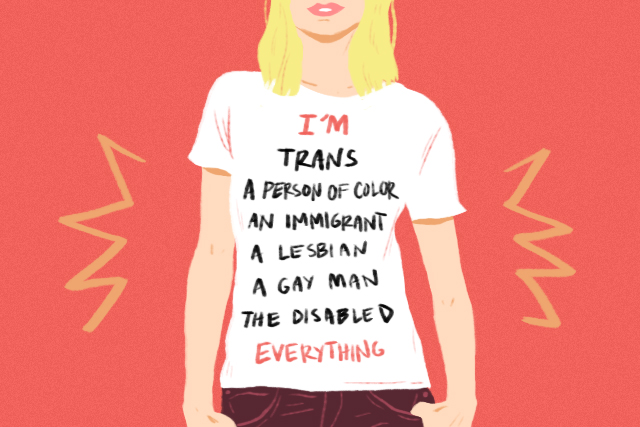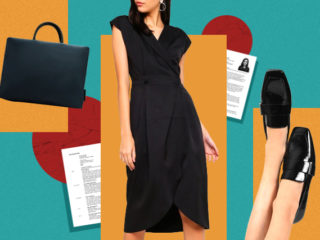
Do you ever read a tweet five times to make sure that you’re understanding it right? That’s what I did when I read actress Alyssa Milano’s tweet about being trans, a person of color, an immigrant, a lesbian, a gay man, and a disabled person.
Alyssa tweeted this after someone asked her if she was transgender—a question that was raised when she greeted transwomen on International Women’s Day. (BTW, people are getting offended with including the trans community in IWD greetings, but that’s a story for another day.) Here’s the thing, though: She’s neither of those labels she mentioned, which drew the ire of netizens.
I’m trans. I’m a person of color. I’m an immigrant. I’m a lesbian. I’m a gay man. I’m the disabled.
I’m everything. And so are you, Kirk.
Don’t be afraid of what you don’t know or understand. No one wants to hurt you. We are all just looking for our happily ever after. https://t.co/znkQizV37k
— Alyssa Milano (@Alyssa_Milano) March 9, 2019
After receiving much backlash, Alyssa followed it up with another tweet explaining that she meant it to show empathy. “Nuance is important and literal interpretation is not always intended. And I can identify with and not identify as. Both are powerful.”
I’m glad this tweet invoked conversation. I’m so sorry it offended some. I see you and hear you. But just a reminder, empathy is not a bad thing. Nuance is important and literal interpretation is not always intended. And I can identify with and not identify as. Both are powerful.
— Alyssa Milano (@Alyssa_Milano) March 9, 2019
We understand Alyssa’s intention but… yikes.
Many have pointed out that while she meant to sound empathetic, her tweet can be seen as a privileged white woman putting on all these hats to appear relatable to minorities. Activist George M. Johnson also reminded her, “You are an advocate. Be [okay] with that. This isn’t the way to say you are with us. You can’t just fake an experience you don’t have. You don’t navigate any space like these groups.”
No. You are an advocate. Be ok with that. This isn’t the way to say you are with us.
You can’t just fake an experience you don’t have. You don’t navigate any space like these groups.
This is the “I don’t see color” approach which is oppression and erasure.
— George M Johnson (@IamGMJohnson) March 9, 2019
This situation is also similar to Gov. Imee Marcos claiming that she’s “bakla” (gay) while courting the LGBTQ+ community to vote for her in the senatorial elections. She later tweeted that gay rights shouldn’t just focus on the LGBTQ+, but every human. (Even if you read that aloud, it’s not going to make sense.)
Dapat intindihin natin na ang gay rights ay hindi lamang para sa ating mga LGBT. Gay rights are in every way human rights as well.
— Imee Marcos (@SenImeeMarcos) January 24, 2019
We’re also going to put it out there: Saying “I don’t see color” fall under this category as well. Former Starbucks CEO Howard Schultz was criticized for saying this during a town-hall event to prove that he’s not prejudiced and welcomes diversity, both in his personal and in every Starbucks branch. This statement was also in light of the coffee empire’s racism issue after two Black men were arrested for staying inside a Philadelphia branch, and the fact that their “anti-racism training” is reportedly taking a wrong approach.
As Forbes noted on this issue: “How can you possibly fix something that you don’t believe you actually see? … We all see color. To say one doesn’t is just not accurate. We have to first, recognize that each of us, no matter our color, have preconceived notions and expectations about different racial groups. Recognition and acknowledgment are crucial.”
READ MORE: Alessandro Michele regrets the racist Gucci mask and here’s what he’s doing about it
This attempt at being relatable to certain sectors is perceived as another form of oppression and erasure. Here, we see people of privilege who claim they know what it’s like to be a minority—they don’t. It comes off as insensitive because they sound like they’re owning these struggles.
Instead of doing that, one should acknowledge the problems and creating plausible solutions for them. Lead an advocacy and not make it about yourself. Even if you meant that you don’t “identify as” the group of people you mentioned just like what Alyssa did.
Art by Marian Hukom
For the latest in culture, fashion, beauty, and celebrities, subscribe to our weekly newsletter here
Follow Preen on Facebook, Instagram, Twitter, YouTube, and Viber
Related stories:
Having a “few” trans models in fashion is NOT real representation
Ted Bundy’s advantage wasn’t his looks, it’s his White privilege
Transgender people #WontBeErased and they’ve changed the world
This display of racism and misogyny against a Muslim woman is disgusting


